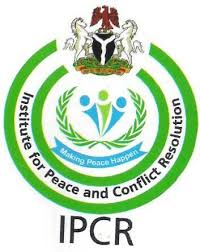Governance deficit at LGA level main cause of conflicts in Nigeria — IPCR
The Director General of the Institute of Peace and Conflict Resolution (IPCR), Joseph Ochogwu, has said the deficit of governance at the local government area level is responsible for most conflicts in Nigeria. He disclosed this during an intersection with journalists on the Peace Action for Rapid and Transformative Nigerian Early Response (PARTNER) project in […]

The Director General of the Institute of Peace and Conflict Resolution (IPCR), Joseph Ochogwu, has said the deficit of governance at the local government area level is responsible for most conflicts in Nigeria.
He disclosed this during an intersection with journalists on the Peace Action for Rapid and Transformative Nigerian Early Response (PARTNER) project in Abuja on Friday.
“One of the major problems is the deficit of governance at the local government level,” he said while speaking about the prevalence of conflicts in the country.
“It (local government) is the closest to the people and we thank the president for the judgment that empowers the local government to function optimally.”
- Flood: Nigeria pushes for climate change solutions
- NGE tasks South-East/South-South governors on security
Ochogwu said the PARTNER project, sponsored by the United States Agency for International Development (USAID), is being implemented in 9 states within the North Central and North West geopolitical zones.
He said the project which commenced in 2022 is focused on conflict early warning, social cohesion and peace building, adding that the project would improve food production and life at the community level.
“The implementation scope of the 5-year project is segmented into tier 1 to 3, with tier 1 covering Plateau and Kaduna states while tier 2 is made up of Benue, Nasarawa, Katsina and Kano states and tier 3 is made up of Kogi, Niger and Zamfara states,” he said.
Ochogwu said conflict Early Warning Response Groups (EWRG), made up of security and non-security personnel, has been established at the national and sub-national levels for the effective implementation of the PARTNER project.
Speaking about the effectiveness of the project, he said there are proofs of reduced conflicts and improved food production in areas where the project is being implemented.
